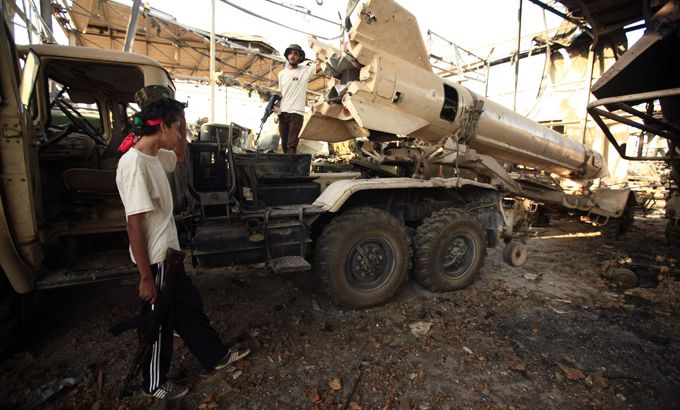
Collateral damage: Victims of NATO’s war
Can NATO be sued and held accountable for killing civilians as most recently seen in Libya and Afghanistan?
A report by Human Rights Watch (HRW) says that air strikes by the North Atlantic Treaty Organisation (NATO) in Libya last year killed dozens of civilians, including women and children. It also accuses NATO of failing to acknowledge those deaths, and says the military alliance has not investigated them.
|
“NATO is an inter-governmental organisation with member states …. [it] is bound to have immunities before national courts, especially national courts of member states, so that is a problem.“ – Olivier Ribbelink, a senior researcher at the TMC Asser Institute |
Can NATO be sued and held accountable for killing civilians and is there an international mechanism to help the victims of war?
The report by Human Rights Watch examines in detail eight separate NATO air strikes, which were designed to push Muammar Gaddafi, the former Libyan leader, out of power, but which ended up killing at least 72 civilians, including 20 women and 24 children.
NATO says it conducted the air campaign with unprecedented care and precision and to a standard exceeding that required by international humanitarian law. But Human Rights Watch says it has evidence that there was not a clear military target at seven of the eight sites mentioned in the report.
The group called on NATO to investigate those attacks, and to report its findings to the UN Security Council, which authorised the military intervention in Libya.
But NATO says it has looked into each credible allegation of harm to civilians, and confirmed that the attack sites were what it calls legitimate military targets, selected in a manner consistent with the UN mandate.
NATO’s actions in Libya are just the latest in a series of accusations of bombing inaccuracies that have raised doubts about its operations.
|
“I think the NATO argument that they can’t conduct an investigation because they don’t have people on the ground is a bit feeble and disingenuous …. If HRW can actually go to these sites and conduct an investigation why is it beyond the wit and capacity of NATO to do that …? You would think that NATO would want to learn those lessons about the mistakes made in this particular case.“ – David Mepham from Human Rights Watch |
Last week, 20 civilians in Afghanistan, including a mother and her five children, were killed in two separate NATO air strikes in southern Helmand and northwestern Badghis provinces.
In 1999, Human Rights Watch also accused NATO of killing hundreds of civilians in 90 separate air strikes in Kosovo, during its 78-day campaign against Serbia.
And the alleged mistakes were not limited to civilians.
Last November, a NATO air strike killed 24 Pakistani soldiers near the Afghan border. The attack generated a lot of tension between NATO and Pakistan’s government.
After being pressured by the government of Afghanistan, NATO and the US military apologised to the families of Afghans killed this month in coalition air strikes in two villages.
A statement from NATO’s International Security Assistance Force said: “Unfortunately, the preliminary investigations into these events have determined that our actions have resulted in a number of deaths and injuries to Afghan civilians. The coalition takes full responsibility for these tragic and regrettable incidents, and we will meet with the family members of those who died or were injured to express our sincere condolences.”
But, if that is an admission of guilt could it lead to legal action and possible compensation for the families?
Inside Story, with presenter Stephen Cole, discusses with guests: David Mepham, the UK director of Human Rights Watch; Olivier Ribbelink, a senior researcher at the TMC Asser Institute at the Centre for International and European Law; and Alexandre Vautravers, a professor of international relations at Webster University and editor of the Swiss Military Review.
ABOUT THE HUMAN RIGHTS WATCH REPORT:
- NATO’s Libya campaign was mandated last October to protect civilians
- NATO says it did its best to minimise risks to civilians
- Human Rights Watch says 24 children were among the 72 civilians killed by NATO in Libya
- The HRW report cites a higher death toll than Amnesty’s findings in March
- The report is based on an investigation of eight NATO attack sites
- Russia says the NATO mission grossly violated its UN mandate
- NATO says all strike targets were carefully chosen and legitimate
- The report calls for a probe into NATO’s air strikes in Libya
- It also says that the families of civilian victims should be compensated